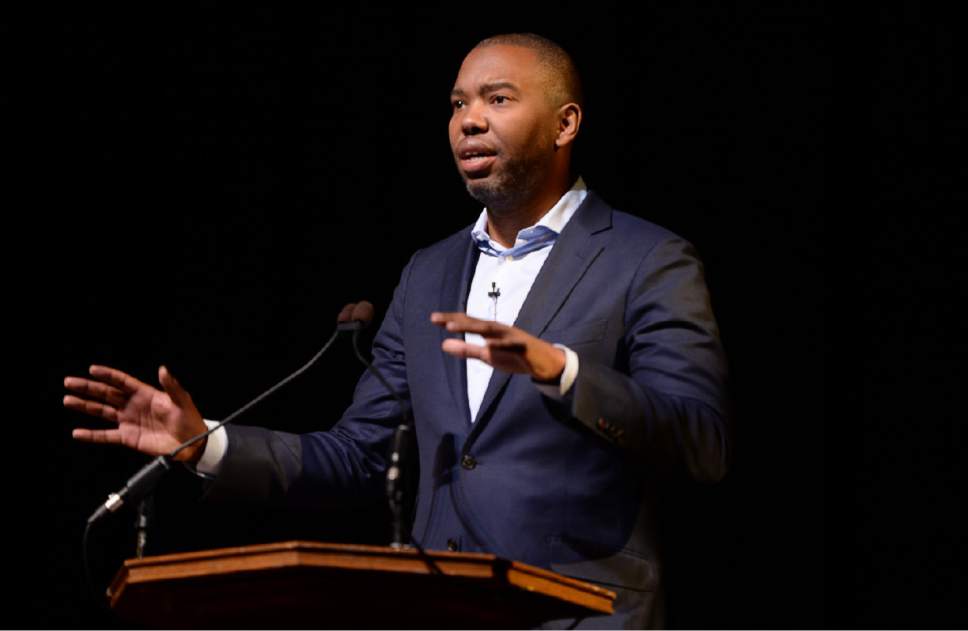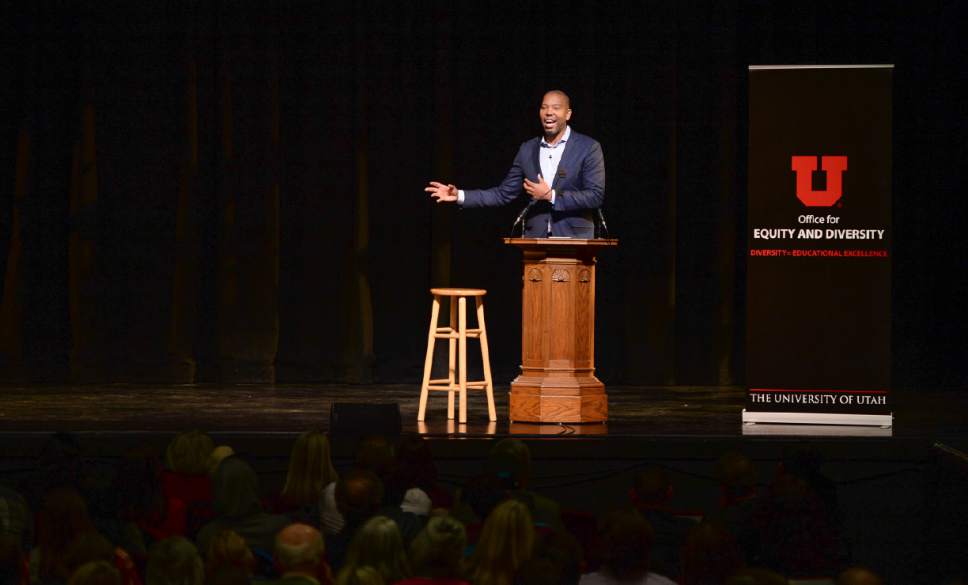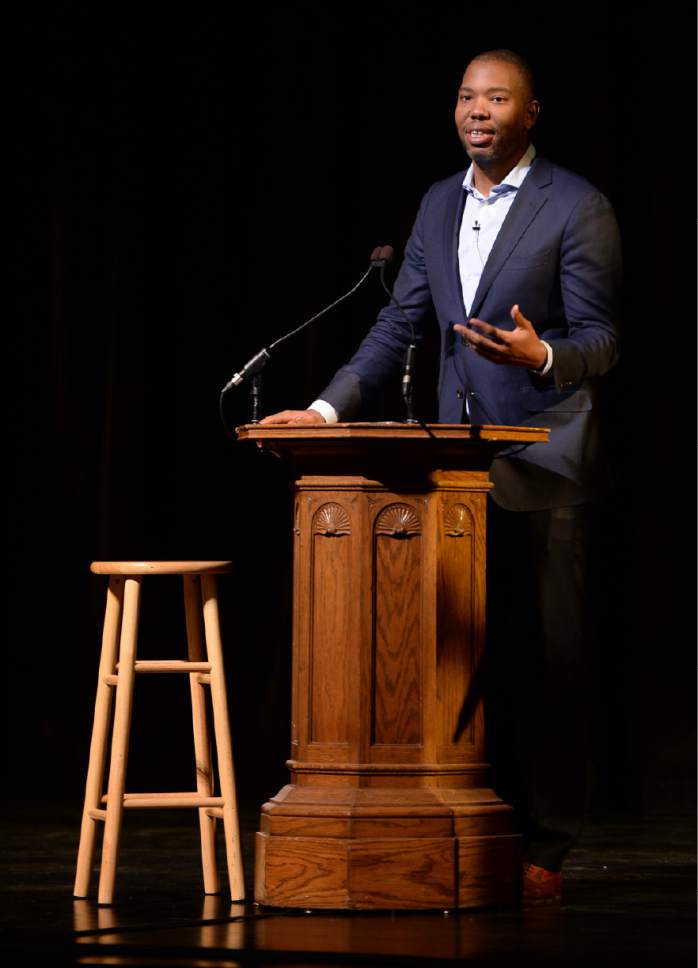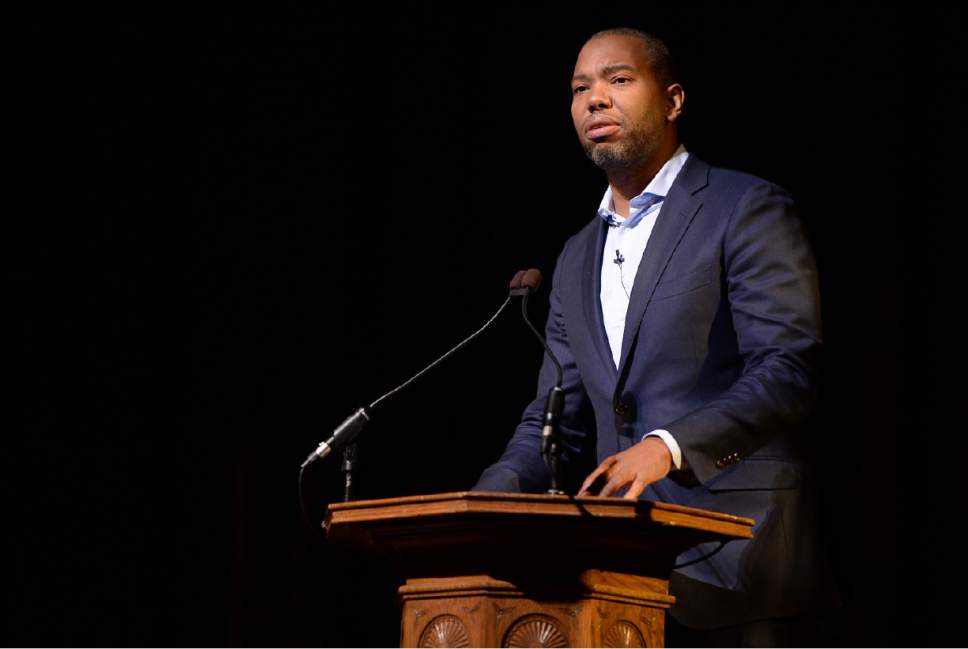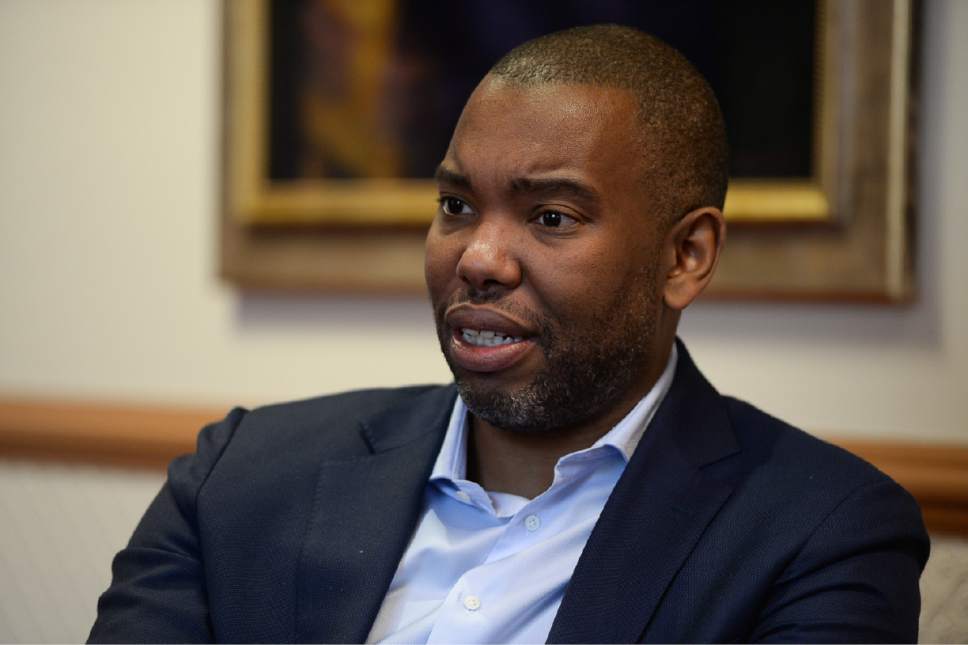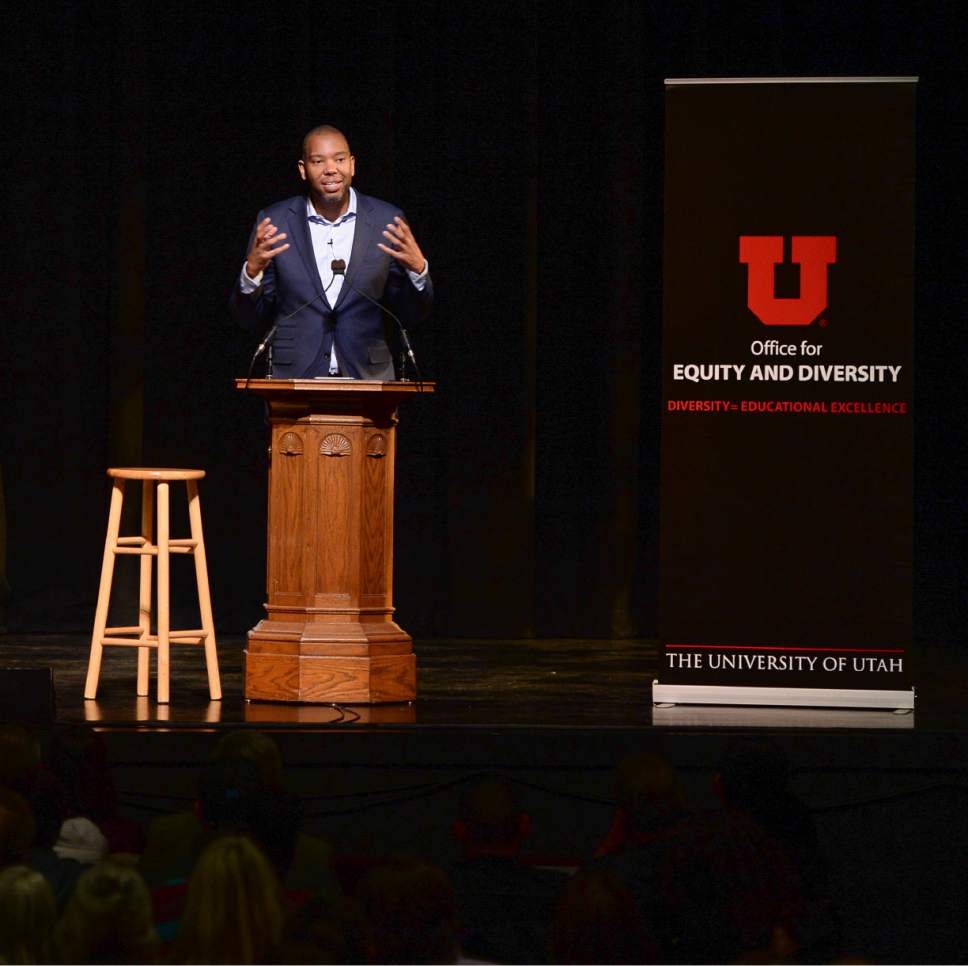This is an archived article that was published on sltrib.com in 2017, and information in the article may be outdated. It is provided only for personal research purposes and may not be reprinted.
The keynote speaker for the University of Utah's weeklong celebration of Martin Luther King, Jr. began his remarks Wednesday by commenting on a Twitter scuffle between a celebrity and a congressman.
Award-winning author and journalist Ta-Nehisi Coates referred to comedian Rob Schneider, who took to the social media platform on Monday — Martin Luther King Jr. Day — to critique a statement by U.S. Rep. John Lewis, D-Georgia, that Donald Trump is not a "legitimate" president.
"Rep. Lewis. You are a great person," Schneider tweeted. "But Dr. King didn't give in to his anger or his hurt. That is how he accomplished & won Civil Rights."
The exchange, Coates said, is part of a larger pattern in which a sanitized version of King's legacy is used to "beat on" people acting in the spirit of the civil rights movement.
"This is a fascinating moment," Coates told his audience at Kingsbury Hall. "Here you have an actor who is best known for his roles in films like 'Deuce Bigalow', lecturing someone who was beaten — actually beaten — in Selma, who personally knew Dr. King."
That sanitizing extends to critics of Black Lives Matter and other groups advocating against police brutality and in favor of criminal justice reform, Coates said.
The author pointed to several high-profile instances that saw black individuals killed or injured by police officers. When those events led to community protests, Coates said, it was the protesters and not law-enforcement officials who were urged to refrain from violence.
"What you have is a situation in which the system itself tolerates violence done to black people," he said. "And the people within that system turn around and tell black people 'you should be non-violent'."
Coates, a national correspondent for The Atlantic magazine whose book "Between the World and Me" won the 2015 National Book Award for Nonfiction, spoke to a capacity crowd.
The event was part of the U.'s annual MLK celebration and included several references to Friday's inauguration of President-elect Donald Trump.
One student, during a question-and-answer period, said he woke up feeling afraid in response to the incoming president. And in her introduction of Coates, University of Utah senior vice president Ruth Watkins spoke of a need to ensure that healthy, vibrant and diverse communities continue for decades.
"Today we celebrate and commemorate," Watkins said, "but also are challenged."
Coates said he did not expect Trump to win November's election, but also that he was not surprised.
A consistent, racialized campaign was waged against President Barack Obama, said Coates, with leaders of the Republican Party refusing to disavow false attacks on Obama's legitimacy, such as the claim he is not a natural-born U.S. citizen.
"The reaction shows exactly who we are right now, and who we are is a country that is willing to elect somebody who was quoted on tape bragging about sexual assault," Coates said. "That that person got their start, launched their political fortunes, in racism with his birther myth — it is what it is."
Coates' said there is a danger in questioning the legitimacy of elected leaders and government institutions, including law enforcement. That can lead to a lack of trust in government itself, he said, and to communities turning to extra-judicial means to establish order.
But he added that criminal-justice reform alone can't solve the problems of racial discrimination. Societal systems are created through democratic institutions, Coates said, and in many cases, when a police officer is charged with a crime, they are acquitted by juries.
"The problem is really us," he said. "We have the police that we deserve. Black people may not have the police they deserve, but America has the police that, at the very least, it asks for."
Twitter: @bjaminwood


